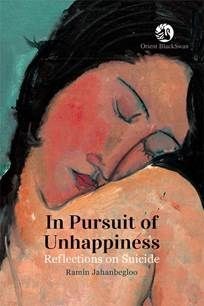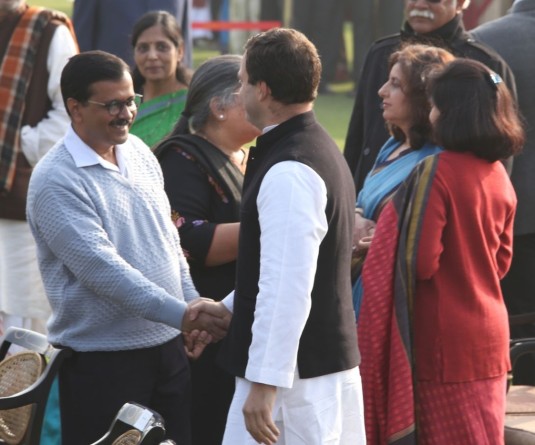Image Source: IANS News

New Delhi, May 21 (IANS) India has effectively decriminalised suicide, with the Mental Healthcare Act, passed by Parliament in 2017 and entering into force a year later, noting that "notwithstanding anything contained in section 309 of the Indian Penal Code (that makes it a punishable offence), any person who attempts to commit suicide shall be presumed, unless proved otherwise, to have severe stress and shall not be tried and punished under the said Code".
"Truly, suicide then is the end of the present, but it is always a possibility of the future. It is the end for the one who commits suicide, but for those left behind, it opens a door to finding the possible meaning of life," Iranian-born Ramin Jahanbegloo, one of the world's leading philosophers and most widely read authors, contends in his seminal book, "In Pursuit of Unhappiness - Reflections on Suicide" (Orient BlackSwan).
"Nonetheless, either as actors or spectators of the act of suicide, we in the present day and age cannot but conclude that human life is full of untold suffering and misery and that we are impotent in finding a meaning to this suffering. And, further, a science tells us, since there is no life after death, what we are left with is only an endless questioning. Every human being knows that life in general, and more specifically the life of an individual is not so much an accomplishment as it is a possibility," writes Jahanbegloo, currently the Executive Director of the Mahatma Gandhi Centre for Nonviolence and Peace Studies and the Vice-Dean of the School of Law at Jindal Global University in Sonepat.
"In other words, suicide is the last Stoic act by which the constructive marginals and dissenters of human civilisation can show that they dominate their human destiny, and are not dominated by it. This freedom of �coming' and �going' in life belongs only to outsiders who struggle to preserve their marginality and autonomy in their lives and works," the author maintains.
Marginality is "living on the edge, and not succumbing to the culture of the masses. It suggests an overcoming of the burden of servitude, much as that of old age and physical debilitation. Suicide produces a double shift in the process of everyday life. On the one hand, it fragments the absolute subjectivist ontology, by emerging as a sideline of the rational subject. On the other, suicide appears as a broken perception of the world which replaces and linear and monolithic everyday discourse of reality", Jahanbegloo explains.
Thus, it becomes the exit from a world that places the human being under the authority of a closed system of values.
"Therefore, if suicide is meaningless, then everything is futile and nothing matters. The despotism of God or the State of Society pushes the individual to respond to evil with the heroic act of annihilating the self, and to respond to death with death," the author writes.
Noting that suicide "remains the last act of chivalry and integrity in a world of mediocrity and indifference", Jahanbegloo says the writer or the artist who commits suicide "repeats the image of the selfless epic knight of yore who excludes all forms of pettiness and calculations in his heroic struggle against the monstrosity of evil and injustice".
Paradoxically, the "morally courageous act of suicide goes hand in hand with the valourisation of the lost cause that finally asserts itself as the heroism of the writer or artist. This need for the exaltation of moral courage of integrity in the face of tyranny and evil � regardless of its causes and the forms that it takes � and its degrading dehumanising consequences can find its final answer in the act of suicide", the author says.
Thus, whether in forms of tragic narratives or in real-life experiences, suicides of fictional and historical figures like Antigone, Socrates, Gerard de Narval. Virginia Woolf, Vladimir Mayakovsky, Walter Benjamin, Sadeq Hedayat and Yukio Mishima "stand out as a protest against the mediocrity and meaninglessness of their times. Or perhaps, that is what happens when a beautiful mind encounters the ugliness and banality of others. Truly, it is in their suicides that these creators of art and animators of ideas found the real meaning of their lives", the author asserts.
As such, "whenever we talk about suicide, we really mean being a spectator to one's own death. But it is also at the same time, as (Albert) Camus, says, a re-evaluation of one's life. The value of our life depends on the intent, the dignity and the clarity with which we live it, among other things. The value of a life also determines the value of its death", the author points out.
Therefore, like other life experiences, "one could say that suicide, too, is an experience that gives meaning to life, it is a journey toward shaping human destiny".
"If the pursuit of unhappiness is a metaphysical dimension of humankind, then suicide is a possible way of transcending the vanity of an indifferent world and reaffirming our humanity," Jahanbegloo concludes � and this is the spirit in which this book needs to be taken.
(Vishnu Makhijani can be reached at vishnu.makhijani@ians.in)






